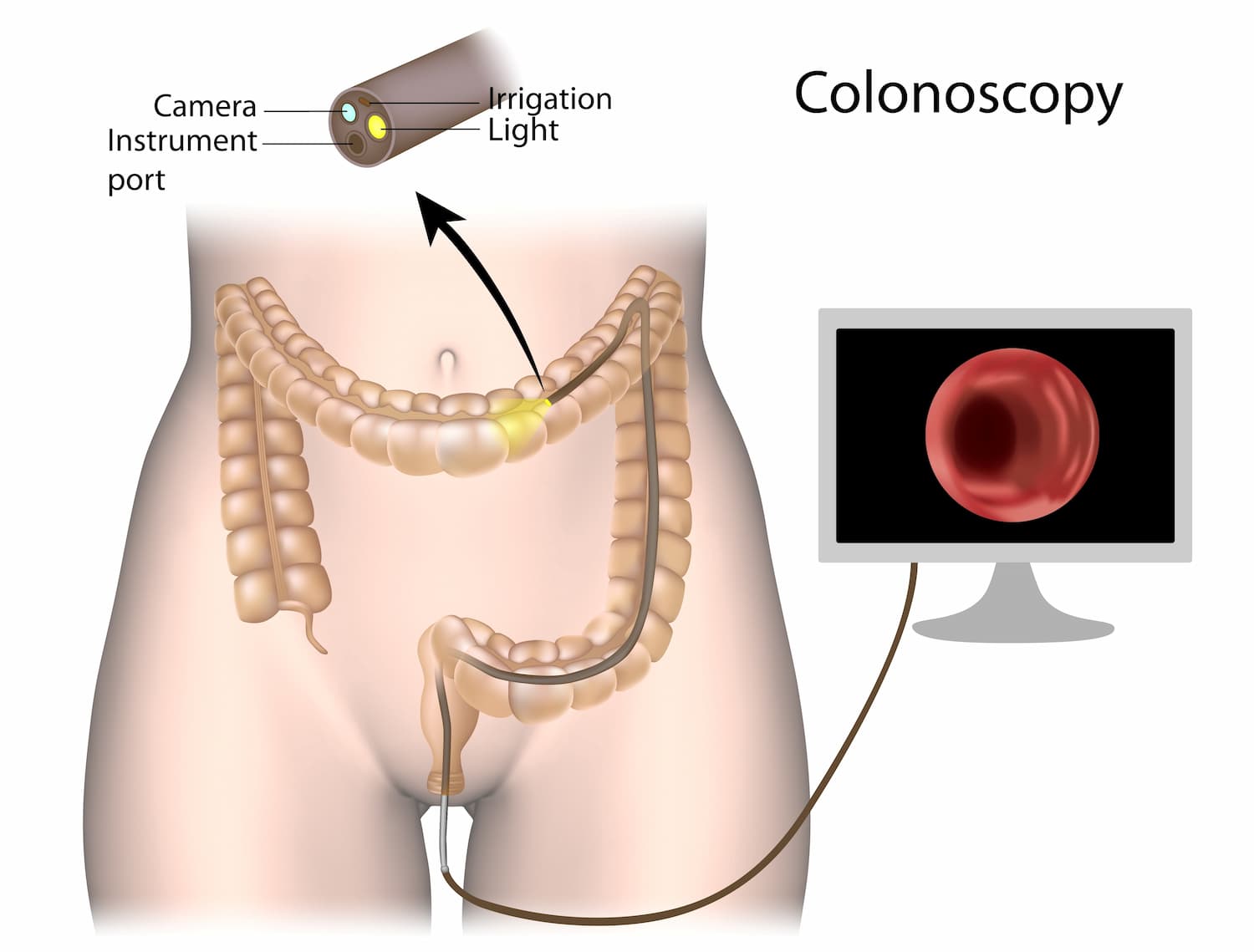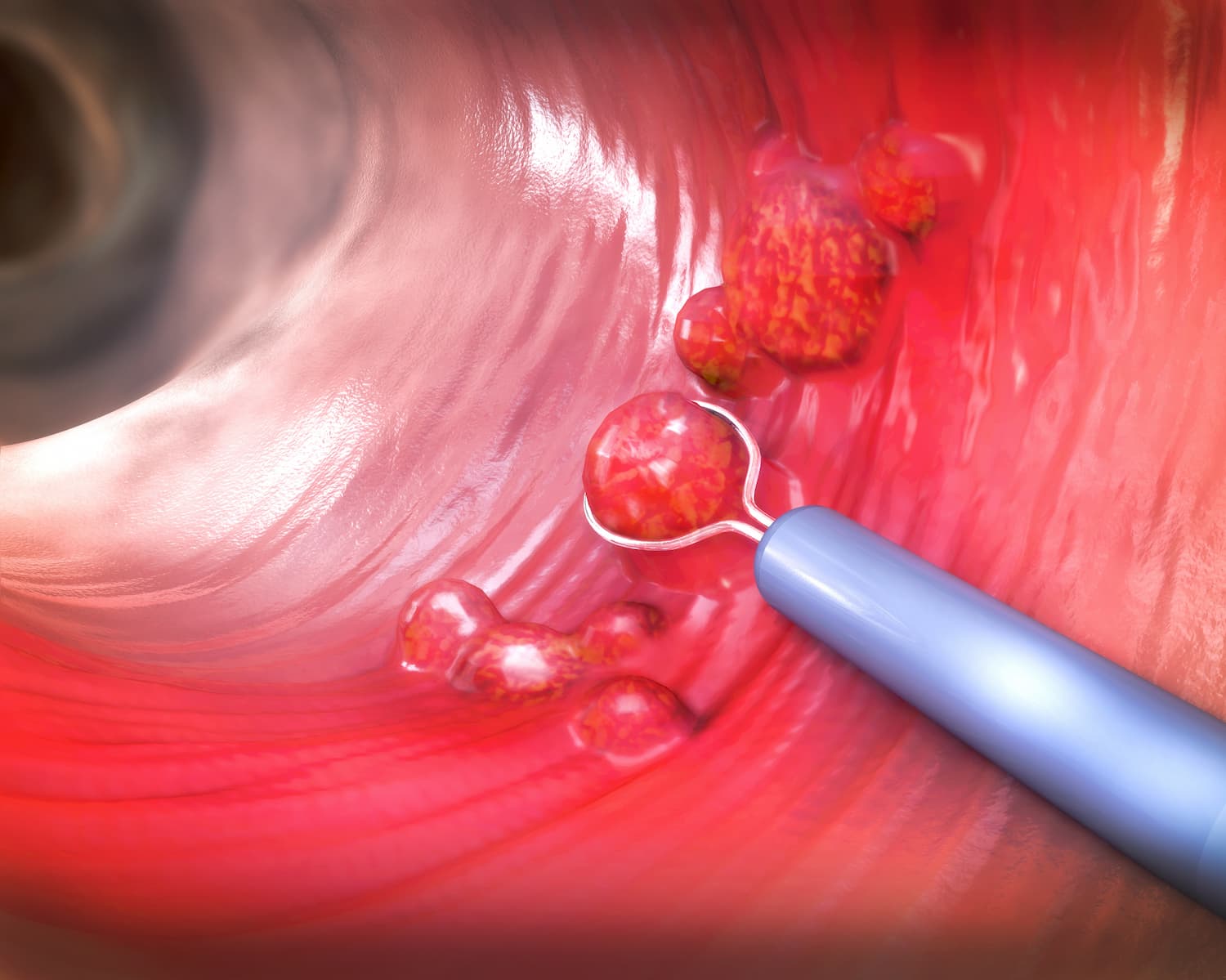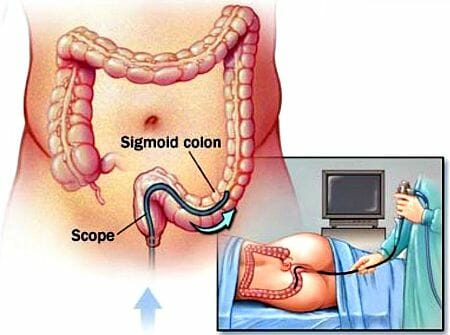Private Colonoscopy
A colonoscopy is a camera examination of your lower bowel or colon. It is used to check for growths, polyps, inflammation and other things that might be causing you symptoms.
Your bowel will need to be as clean as possible so I can examine it thoroughly. This means that you will need to take strong laxatives the day before the examination and you will need to be off work and near a toilet. The diarrhoea will start a couple of hours after you start the laxatives.
For 2 days before your private colonoscopy you will need to be on a low fibre diet and then switch to clear fluids only for the day before the procedure.
The test itself can be uncomfortable so the majority of people have some strong pain killers and sedation. You will not be completely asleep but the procedure will be more comfortable than otherwise. If you choose to have sedation you will need someone to pick you up from the hospital and stay with you over night.


You will not be able to drive for 24 hours after the procedure.
In general if you choose to have sedation you will need the day before, the day of and the day after the procedure off work.
If you need to drive after the procedure and/or can not have some one stay with you over night we can give you some gas and air which can also make the procedure more comfortable than no sedation at all.
If I find some small polyps I may remove them at the same time. This adds a few minutes to the procedure but you won’t feel anything.
If I find any larger polyps, growths or inflammation I will biopsy (or sample) the area and send them to the lab for testing. I will see you back in clinic to discuss the results and plan the next steps.
You will receive the results on the same day and I will talk to you after the procedure. I will also see in clinic to discuss the next steps and to ensure that you have understood everything and also to go through the results of any biopsies or samples that were taken for testing in the lab.
A private colonoscopy is a very safe examination. There is a small risk of bleeding – particularly if samples were taken. There is an even smaller risk of perforating or making a hole in the bowel – this is in the region of 1 in 1500. A small proportion of these patients may need surgery to fix the hole.
There is also a small chance particularly if the laxatives have not worked as well as they should have done that small, subtle abnormalities may be missed. If I think there is a significant chance of this I may recommend that we repeat the procedure with even stronger laxatives to be absolutely sure.
Flexible sigmoidoscopy
This is very similar to a colonoscopy but only examines the lower third of your colon. In general no special preparation or laxatives are needed. You will be given an enema. This is a small tube of fluid that is squeezed through your back passage into your rectum. You should try and hold the fluid for as long as possible and then go to the toilet as normal. This empties the bowel making it easier for me to examine the lining.
The enema may be given to you in hospital on the day of your examination or may be given to you to have at home before coming into hospital. It is simple to use and most people are able to give themselves the enema with out any problems. Sedation is not normally needed and most people only need to be off work for the day of the procedure.

Case study: colonoscopy for diverticulitis
Mr AT is a young, active accountant and busy farther of 3 girls. He has long suffered with diverticular disease. He was first admitted to hospital 5 years ago with a diverticular abscess at the age of 35 - this was drained in hospital and he had a good recovery. Over the following years however he would suffer with several episodes of pain requiring several days off work through out the year. He was also admitted to hospital and required intravenous antibiotics on two further occasions in the 5 years.
One of Mr AT’s close friends had been treated by Mr Peravali and he was highly recommended so Mr AT made an appointement to see him at Spire Little Aston Hospital.
Mr Peravali recommended a private colonoscopy to be sure of the diagnosis. This was organised for him within a few days. Diverticular disease was confirmed. As the disease was confined to a small area of the bowel and the condition was causing significant disturbance to Mr AT’s life they both agreed that it was reasonable to remove the diseased segment of bowel.
Mr AT was operated on a few weeks later. He underwent key hole surgery and removal of the diseased part of the bowel. The two ends of the bowel were joined up and he made an uneventful recovery. Mr AT spent 3 days in hospital and was discharged home. He was back at work 3 weeks later. His life has significantly improved and he no longer gets attacks of abdominal pain and has not had anymore time off work for this reason.
Videos about colonoscopy
What actually IS a colonoscopy?
What is a colonoscopy, and how is it performed?
What do I need to know before my colonoscopy?
What do I need to know before my colonoscopy?
Who should have a screening colonoscopy?
Who should have a screening colonoscopy?
What can I expect when I come in for a colonoscopy
What can I expect to happen during a colonoscopy?
What sedation do I get for my colonoscopy?
What sedation do I get for my colonoscopy?
Will I be able to drive after my colonoscopy?
Will I be able to drive after my colonoscopy?
What does preparing for a colonoscopy involve?
How can I best prepare for a colonoscopy?
Is colonoscopy the best test for me?
Is colonoscopy the best test for me?
Will I need time off for my colonoscopy?
Will I need to take time off work for a colonoscopy?
When will I get the results of my colonoscopy?
When will I get the results of my colonoscopy?
